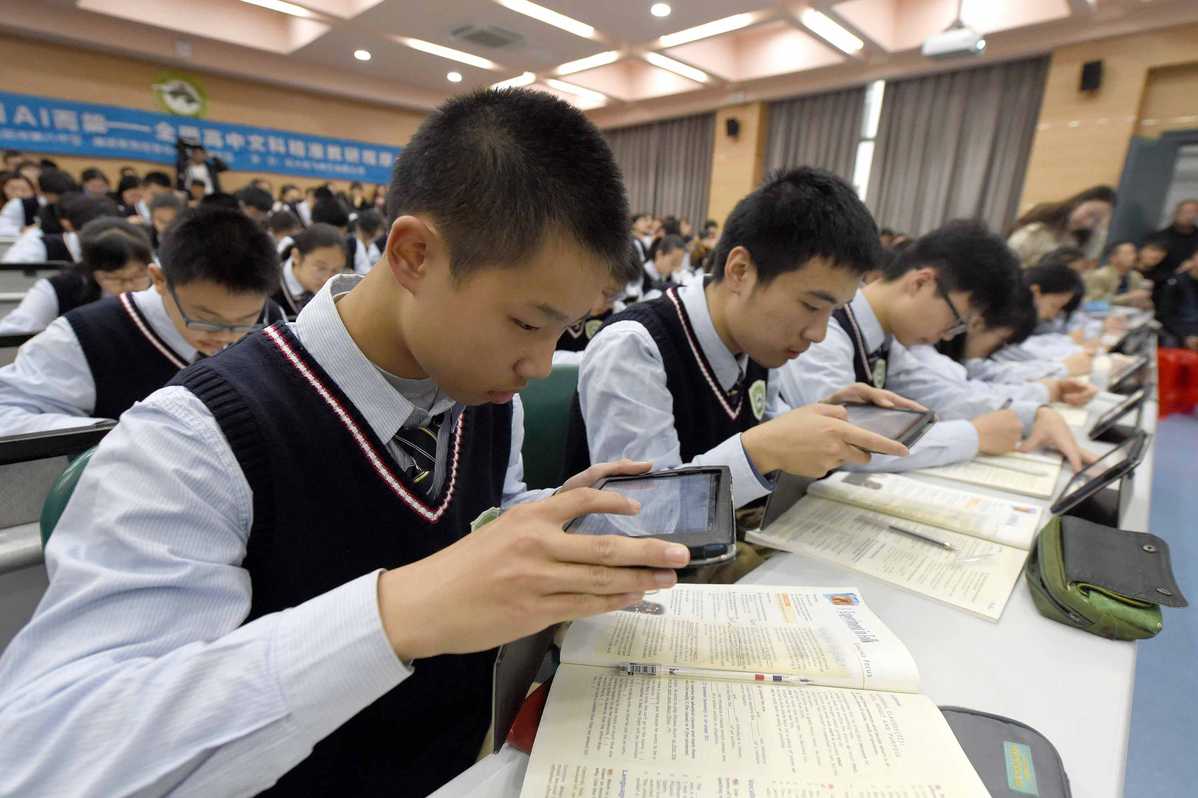Artificial intelligence pioneer leverages tech to raise efficiency


A portable translator provides real-time translation in 60 languages. A robot has passed the written test of China's national medical licensing examination. And computer systems assist courts in judging criminal cases and automatically score papers students have spent days writing.
All of these fiction-like gadgets or scenarios are taking place in Hefei, capital of Anhui province, thanks to iFlytek Co Ltd, a Chinese artificial intelligence company. The Shenzhen-listed company is leveraging its years of research in AI-enabled voice interaction to empower traditional sectors to boost efficiency.
Liu Qingfeng, chairman of iFlytek, said such efforts will encourage more third-party hardware and software developers to adopt the company's voice interaction computing platform.
Currently, some 1.6 million developers are using its AI-enabled user interface platform to build products such as robots, smart televisions, smart cars and software applications.
Hu Yu, rotating president of iFlytek, said the company will build an AI learning platform to help cultivate about 100,000 people to accelerate the industrial use of the cutting-edge technologies.
It also aims to support 1,800 enterprises to better integrate AI into their existing products and services, Hu said.
Founded in Hefei, iFlytek has been focusing on voice recognition technologies for over two decades and it is leveraging the experience to help increase efficiency in the education, healthcare, judicial and other sectors.
In December 2017, iFlytek was chosen by the Ministry of Science and Technology to build China's first national laboratory for cognitive intelligence, which is the highest phase of AI. The laboratory focuses on helping machines think like humans.
In September, iFlytek became the exclusive supplier of automated translation software for the 2022 Beijing Winter Olympics and Paralympics.
Yu Hong, head of technology at the organizing committee for the 2022 Beijing Winter Olympics, said the company will provide technological support on voice recognition and machine translation at the games.
"Such products and services will create a sound communication environment for the games. It will also help reduce repetitive work to improve efficiency," Yu said.
Her words are echoed by Hu. "Voice interaction has become one of the most essential ways for human-computer communication. A vibrant ecosystem that involves technological edge, a wide range of hardware forms and a robust cloud computing platform is essential for success in the intelligent era," Hu said.
Li Deyi, an academician at the Chinese Academy of Engineering, said AI is being increasingly used in consumer electronics, manufacturing, healthcare and other traditional industries.
"Nurturing more AI professionals is key to being a world pioneer in cutting-edge technology," Li said.



































